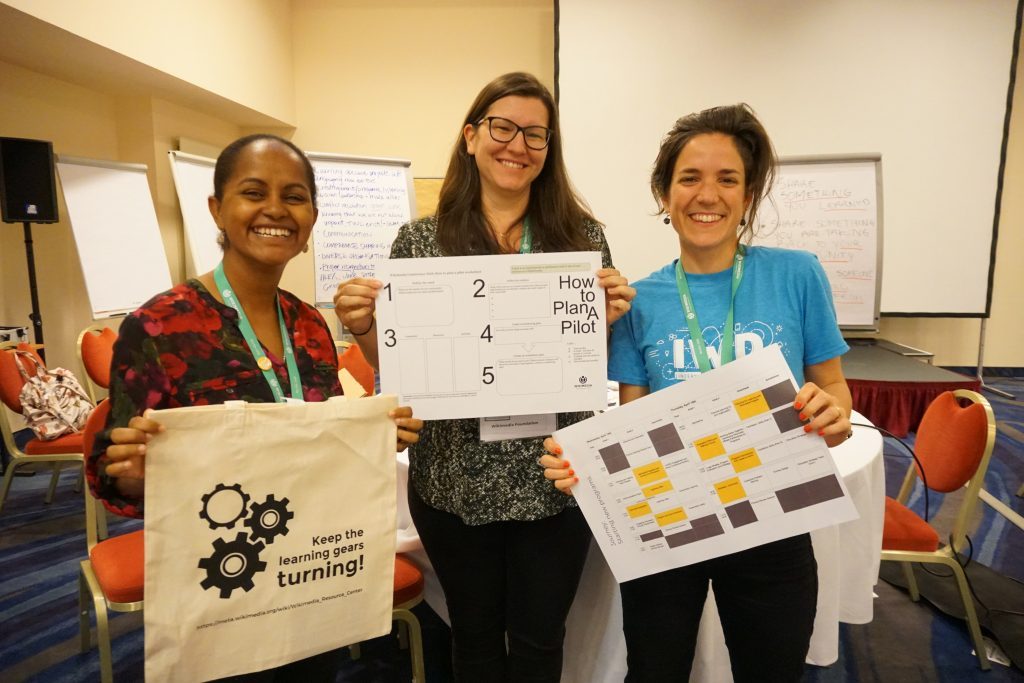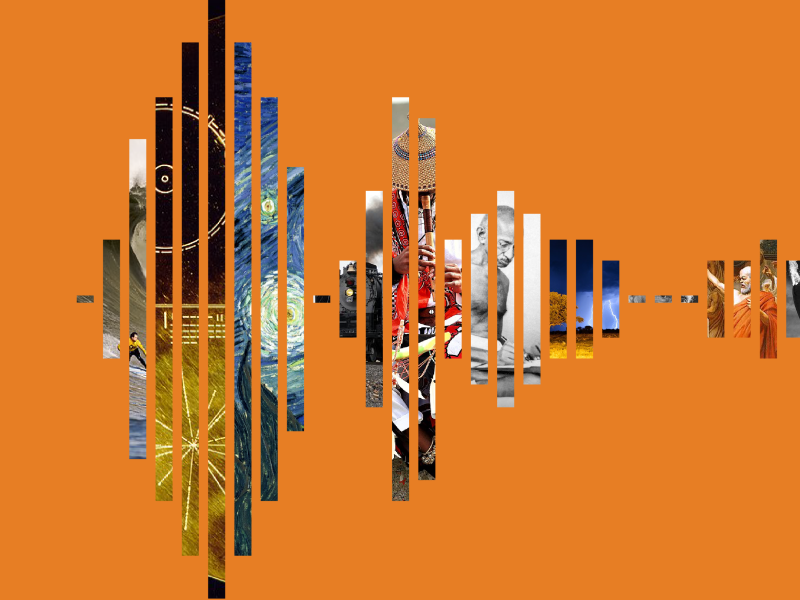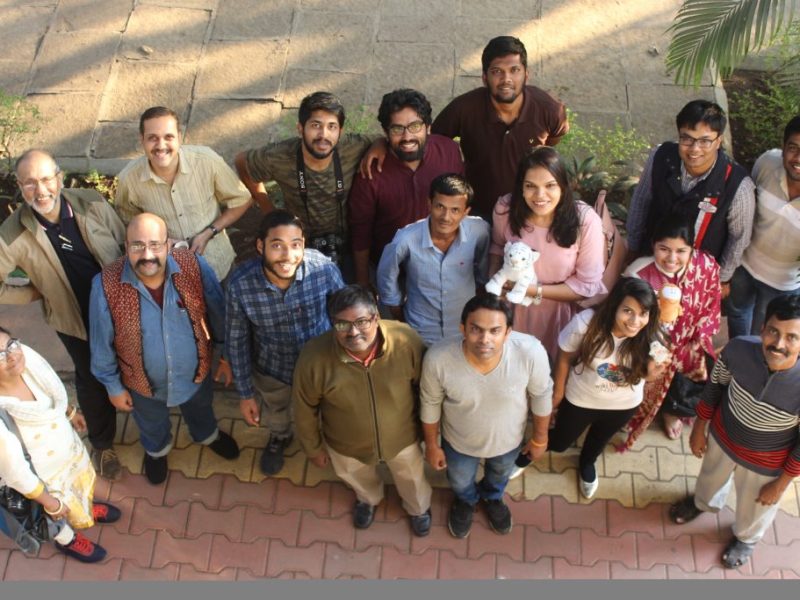How do we make knowledge creation truly participatory for every community on our planet? The Wikimedia movement has been growing steadily, with more volunteers joining, and new affiliate groups created every year. Affiliates represent our movement at the local level and are charged with organizing activities and events to get people and organizations involved in the creation of the sum of all knowledge. Between 2014 and 2019, Wikimedia movement affiliates tripled: we went from having 50 affiliates to over 150 (and we keep growing!). It grew more in this last five years than it did in its first eleven years of existence.
How do we ensure that this growth is sustainable? In 2013, we started the Wikimedia Learning and Evaluation initiative to build a culture of accountability and learning within the movement. After five years implementing Learning Days, we are now also offering a new, evolved curriculum: Training of Trainers, in-person training that incorporates our communities’ higher levels of experience. The next opportunity to receive this training will be at Wikimania Stockholm, on 14–15 August. Learn more and sign up!
Piloting structured training: Learning Days
We at the Wikimedia Foundation had observed for several years how communities took on to adapting initiatives that were successful in different parts of the world. A good example of this is the program Wikipedian in Residence. In 2010, Wikipedian Lyam Wyatt suggested this role at the closing speech of GLAM-Wiki congress: a person that would be in charge of training the staff group in a museum, archive, library, or gallery (GLAM) on how to use the Wikimedia projects to promote their collection or archive. The idea of this program was so attractive that several Wikimedia communities replicated the model, and today, there are more than 125 Wikipedians in Residence all over the world.
While replication has always played a big role in our collective learning as a movement, it wasn’t sustainable or necessarily yielding the desired results for local communities. This is why in 2013, we started the program Learning Days, with this foundational question: are your activities and events helping you reach your goals? These two days of professional training included workshops on program design and evaluation, how to create a theory of change and logic models, how to measure success, and how to do storytelling for engagement, among other topics. In the course of 6 years, through 11 implementations of Learning Days, and with other learning resources developed, we have seen affiliates’ proposals and reports improve significantly in terms of setting clear program goals and targets and then executing and measuring the impact of those goals .
Throughout this journey, we identified some Wikimedia communities had more advanced learning than others, and we incorporated this knowledge as part of the curriculum: in the last iteration of Learning Days, half of the sessions were facilitated by community members. These were more experienced Wikimedians that were stepping up to share their skills with their peers.
An evolved curriculum: Training of Trainers
Today, our movement finds itself at an interesting turning point: we now observe multiple specialized skills within the movement and higher levels of expertise. How can we make room for experienced movement organizers? It is time to evolve our capacity development proposal to support these needs, too. This is why we developed Training of Trainers, an in-person training curriculum to develop Wikimedia movement organizers into skilled trainers within their home communities. This new curriculum seeks to increase capacity for structured, reflective, and effective training of learners, to improve understanding of and confidence in community members’ own role and style as trainers, and to create a global network of trainers who share knowledge and best practices. The goal is to develop community leaders into skilled trainers, that can share their skills with others, in order to scale the movement in a sustainable way.
The first implementation of this new curriculum took place at the Wikimedia Summit, a conference held in Berlin earlier this year. After the training, over 71% of participants increased their confidence in their mastery of all of the training’s core skills.
These outcomes encourage us to explore the possibilities of this new proposal even more, and we have been working to improve this curriculum in several areas. This is what we hope to offer at Wikimania 2019 in Stockholm: a combination of enhanced curriculums that can apply to a variety of Wikimedians, and find better ways to collaborate. To participate, register to attend Wikimania, including the pre-conference days. Find more information and register by 31 July!



